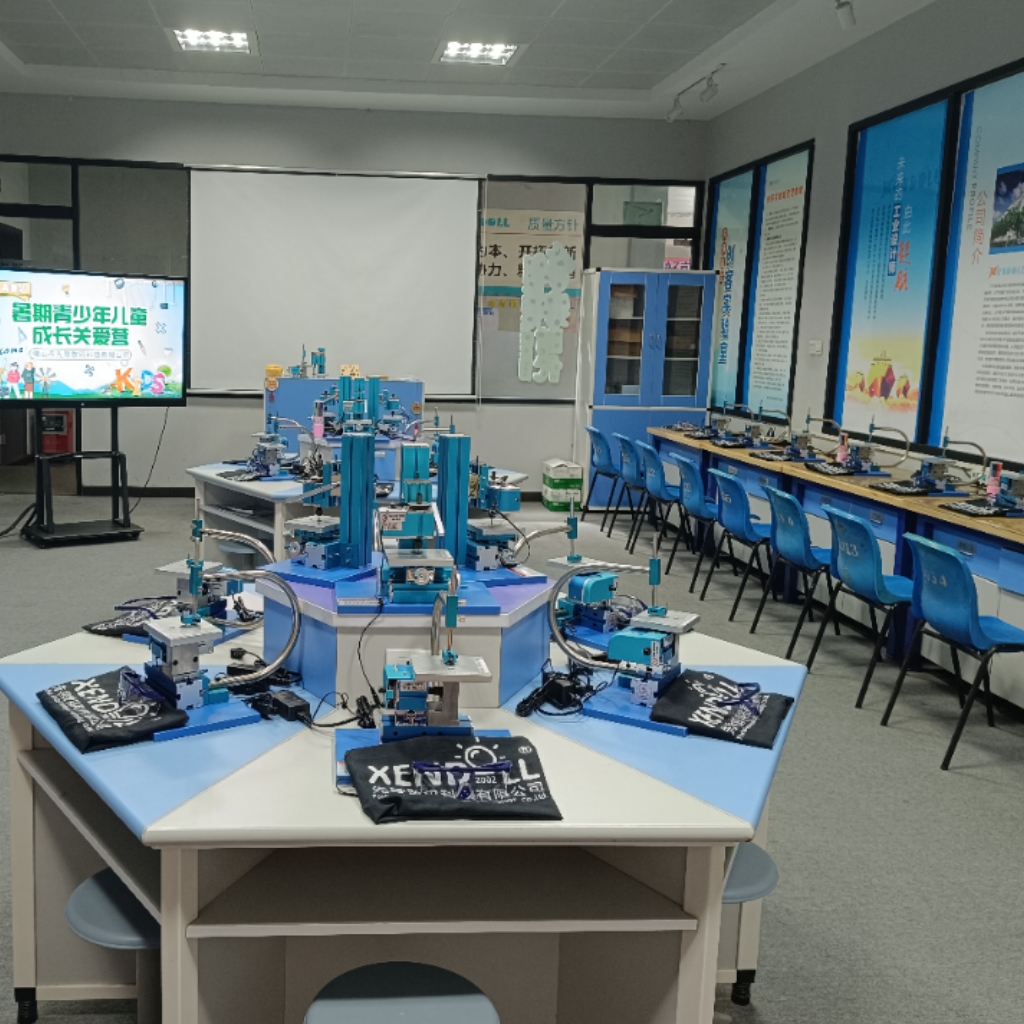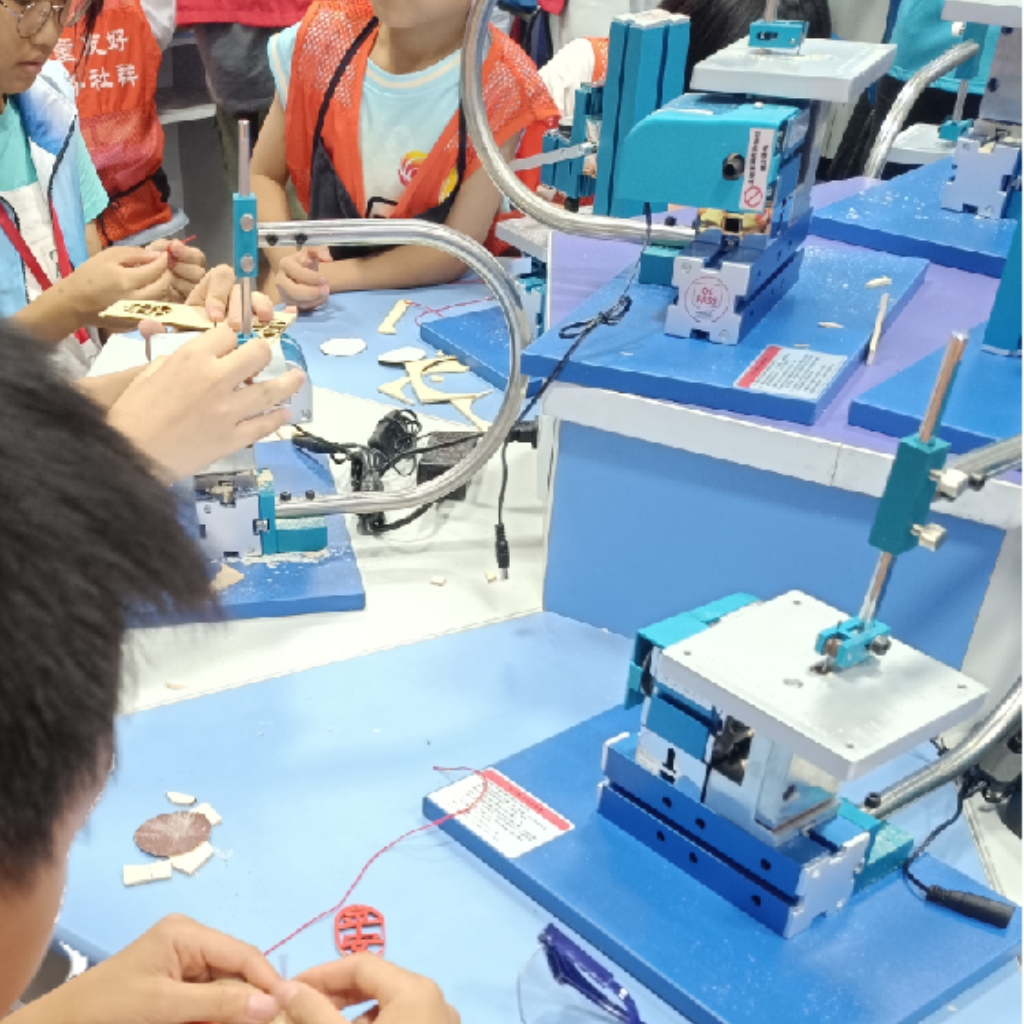Blog
Xendoll has 22 years of experience in the production of small machine tools. We will help you choose the suitable machine and share our experience in CNC machining with you.
 Jun 03, 2025
Jun 03, 2025

 1077
1077
For the modern maker – the tinkerer, the inventor, the passionate creator driven by the desire to build, repair, and innovate – the quest for capable tools is never-ending. Among the pantheon of workshop equipment, the metal lathe stands out not just as a machine, but as a fundamental enabler of possibility. Once the exclusive domain of industrial workshops, the rise of robust, precision benchtop metal lathes, like those engineered by XendollTools, has placed this transformative power squarely within the reach of the typical enthusiast, educator, and small-scale fabricator. Far from being a mere luxury, a metal lathe quickly evolves from a significant purchase into an indispensable core asset, dramatically expanding the maker's capacity for precision, complexity, and self-reliance. Let's explore precisely why a metal lathe is so incredibly useful to the typical maker.

1. Unmatched Versatility: The Foundation of Creative Freedom
* Core Capabilities Defined: At its heart, a metal lathe rotates a workpiece against a stationary cutting tool, enabling the creation of cylindrical and conical shapes with exceptional accuracy. This fundamental action unlocks a vast array of essential operations:
* Turning: Reducing the diameter of a workpiece to precise dimensions, creating shafts, spindles, and pins.
* Facing: Machining the end of a workpiece perfectly flat and perpendicular to its axis, crucial for ensuring parts mate correctly.
* Boring: Enlarging or refining existing holes to exact diameters and depths with superior surface finish.
* Drilling: Creating precise axial holes directly on the lathe, ensuring perfect alignment.
* Parting/Cutoff: Slicing finished parts from the raw stock.
* Threading (Internal & External): Cutting highly accurate screw threads, vital for creating fasteners, fittings, and assemblies.
* Taper Turning: Machining conical shapes, essential for tooling, fittings, and decorative elements.
* Knurling: Impressing diamond or straight patterns onto surfaces for improved grip (e.g., on knobs or handles).
* Material Mastery: While named for metal, a quality benchtop lathe adeptly handles aluminum, brass, mild steel, stainless steel, and also excels with tough engineering plastics (like Delrin, Acetal, Nylon) and even wood for precision applications. This liberates the maker from constraints imposed by commercially available stock or softer materials.
* Project Scope Transformation: Imagine crafting custom bushings, spacers, and thrust washers to exact specifications. Envision repairing a worn shaft on a vintage engine or a prized tool instead of hunting for obsolete parts. Think about turning custom pulleys, creating precision components for robotics or drones, manufacturing unique fittings for fluid systems, or crafting intricate decorative finials. The metal lathe makes these projects not just feasible, but achievable with a level of quality often surpassing commercial alternatives.
2. Precision: The Hallmark of Professional Results
* Tolerances That Matter: Countless maker projects stumble not in design, but in execution due to insufficient precision. A slightly oversized bearing seat or an undersized shaft can render hours of work useless. A metal lathe operates routinely within tolerances of thousandths of an inch (or hundredths of a millimeter). This capability ensures parts fit together seamlessly, mechanisms operate smoothly, and assemblies function reliably under load.
* Repeatability: Need ten identical spacers or a matched set of components? Once the initial setup is perfected on the lathe, producing precise duplicates becomes a relatively straightforward process. This is invaluable for batch production, repairs requiring multiple parts, or building modular systems.
* Superior Surface Finish: Beyond dimensional accuracy, a metal lathe produces surface finishes far superior to those achievable with hand tools, files, or basic power tools. A properly turned surface often requires minimal finishing, exhibits a professional appearance, and is critical for sealing surfaces (like in hydraulic fittings), bearing fits, or simply aesthetic appeal.
3. Cultivating Essential Skills & Deep Understanding
* Mastering Machining Fundamentals: Learning to operate a metal lathe effectively immerses the maker in core principles: understanding cutting speeds and feeds for different materials, selecting and grinding appropriate tool bits, mastering various workholding methods (chucks, collets, centers), applying cutting fluids, and performing precise measurement (calipers, micrometers). These are foundational manufacturing and engineering skills.
* Problem-Solving & Critical Thinking: Every lathe project presents unique challenges: devising a secure setup for an awkward shape, determining the optimal sequence of operations, troubleshooting chatter or poor surface finish, achieving a demanding tolerance. Success requires methodical problem-solving, analytical thinking, and developing technical intuition – skills that transfer to all aspects of making.
* The Gateway to CNC (Optional): While manual lathes offer immense power, many modern benchtop models, including options from XendollTools, are CNC-ready or offer CNC variants. This provides a natural progression for makers wanting to integrate CAD/CAM workflows for highly complex or repetitive tasks, further expanding their capabilities.
4. Empowering Self-Reliance & Cost Efficiency
* Bypassing Outsourcing Costs: Having simple custom metal parts made externally can be prohibitively expensive for an individual or small project, often involving high minimum order quantities and long lead times. A lathe eliminates this barrier. Need a specific bolt, spacer, bushing, or shaft modification? Make it yourself in a fraction of the time and cost.
* The Ultimate Repair Tool: The ability to machine replacement parts is incredibly empowering. It breathes new life into broken machinery, classic vehicles, motorcycles, appliances, and power tools. This self-sufficiency saves significant money on replacement parts or specialist repair shops, especially for obsolete items.
* Rapid Prototyping & Iteration: Developing a new design often requires multiple physical iterations. A lathe allows for quick in-house fabrication of metal prototypes, enabling faster testing, refinement, and improvement cycles without the expense and delay of external suppliers.
5. Accessibility: The Benchtop Revolution (Where XendollTools Excels)
* Democratizing Precision Machining: This is the key advancement enabling the typical maker. Modern benchtop metal lathes, such as those offered by XendollTools, provide remarkable rigidity, precision, and capability in a compact footprint suitable for a home garage, basement workshop, school laboratory, or community makerspace. They operate on standard single-phase electrical power, removing a major historical barrier.
* Ideal for Education: Their manageable size, relative safety (with proper training and guarding), and focus on core skills make them perfect for STEM programs, university engineering labs, and technical schools. XendollTools' range, including models specifically designed for training environments, empowers educators to impart vital hands-on manufacturing skills to the next generation of makers and engineers.

Conclusion: Beyond Useful – A Foundational Tool for Maker Empowerment
To call a metal lathe merely "useful" to the typical maker is a profound understatement. It is a foundational, transformative tool that fundamentally reshapes the boundaries of creativity, problem-solving, and independence. It delivers unrivaled versatility for shaping metals and plastics into precise cylindrical and conical forms. It provides the critical precision necessary to elevate projects from amateur attempts to professional-quality results. It fosters the development of essential engineering and manufacturing skills and cultivates deep problem-solving abilities. Crucially, it empowers true self-reliance in fabrication and repair, offering significant cost savings and eliminating frustrating dependencies.
Thanks to the benchtop revolution pioneered by companies like XendollTools, this immense capability is now accessible. It fits within the space constraints and budget of the dedicated hobbyist, the innovative educator, and the aspiring professional.
For the maker committed to serious creation, restoration, or innovation, investing in a quality metal lathe isn't just adding another tool; it's acquiring a core capability. It transforms the maker from someone who assembles and modifies into someone who truly creates and engineers functional, durable, and precise components from raw material. The journey from a conceptual sketch or a broken part to a perfectly machined solution becomes a direct, hands-on reality. This undeniable utility and transformative power solidify the metal lathe as an indispensable cornerstone of the empowered maker's workshop.
Ready to unlock the precision, versatility, and self-reliance a metal lathe offers? Explore the range of high-performance benchtop lathes designed for makers, educators, and professionals at XendollTools.com. Discover how the right lathe can revolutionize your making journey.



 Show all our samples
Show all our samples
 Provide you with a free quote
Provide you with a free quote
 Answer all the questions you may have
Answer all the questions you may have
 Guided installation and other options
Guided installation and other options